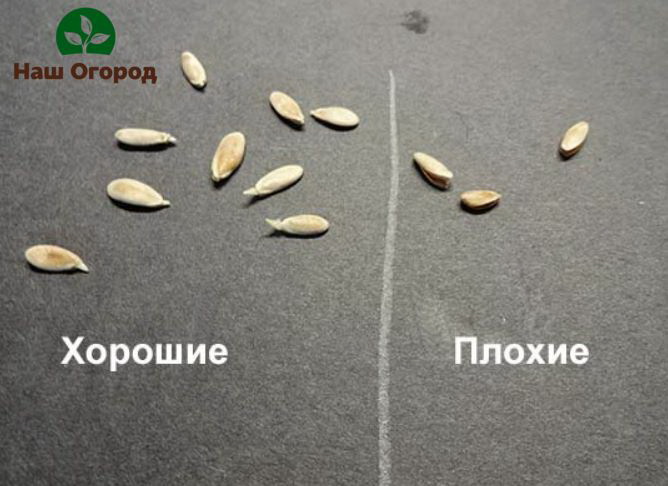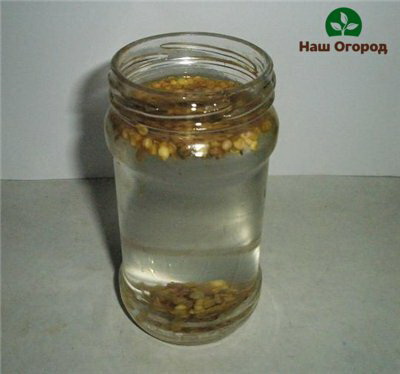Important tips for purchasing seeds for planting
Content:
Before the start of a season, the summer resident faces the question of seeds for planting crops intended for cultivation: what should be considered when choosing and how not to fall for a fake? What are the rules for choosing seeds?
We will try to understand this, at first glance, a difficult issue.
Seeds for planting: how to buy?
To begin with, let's remember the famous expression “a miser pays twice”. Yes, indeed, many summer residents, trying to somehow and somewhere to save money, acquire crop seeds from unverified producers, and then now and then suffer with their germination and obtaining a weak harvest. To avoid this, it is recommended to purchase organic material only in large specialized stores, breeders' firms. Having found a once proven place, you will never be at a loss and spend several times less effort and resources than it would be with cheap, but low-quality plant seeds.
What should you first of all pay attention to when picking up a package with this or that variety? Mainly - on the composition. A conscientious manufacturer will never hide any general information from the buyer, so be sure to check for information about the agricultural technology of the crop, its specific variety, if it is a hybrid, then its labeling and designation should be indicated, it is desirable to have recommendations for caring for the plant in the process of development and growth. The manufacturer must first of all know himself what kind of product he is dealing with and consult the buyer directly about it. The next point is information about the batch number, GOST, in accordance with which the sowing qualities of the product are determined. Naturally, the address of the production and other contact information should be present, and not just a beautiful faceless headline.
The most important factor in the selection of seeds is the indication of the expiration date, as well as the crop year of the seeds of the respective crop. Otherwise, if such information is not indicated on the package, you run the risk of running into old and stale seeds, which subsequently will not be able to sprout and will turn out to be just a senseless waste of money. Pay attention to such a parameter as the percentage of germination of a particular type of seed - this is mandatory information and the manufacturer is simply obliged to notify the buyer about it.
The moment of additional information on the preliminary chemical treatment of seeds is emphasized. So, for example, if a warning is indicated about the prohibition of heating and freezing, from this we can conclude that the manufacturer has already taken care of all the necessary preliminary operations and your independent intervention to speed up the germination of seeds will result not only in failure, but also in their death.

General information
After making sure of the conscientiousness and honesty of the seed producer, you need to decide which variety you need to grow on the site. No fewer nuances emerge here, each of which can determine the fate of your crop.
Analyze the number and volume of seeds required depending on the available area. Having bought too many seeds, you may simply not have time to sell them so that the plants are comfortable in the process of growth and they do not embarrass each other.
As for the individual characteristics of seeds, first of all, pay attention to the criteria for keeping quality, frost resistance, as well as the overall yield of the variety.Oddly enough, low-yielding varieties, due to their general unpretentiousness in care under certain growing conditions, may turn out to be ahead of varieties with high yields in terms of productivity, but this depends personally on your desire, time and capabilities. Every culture needs proper care, even in the smallest degree.

Depending on the location of the site, the best option would be to grow crops that are resistant to temperature changes, the seeds of which are also able to survive in harsh conditions. The complex resistance of the variety is highly valued because does not require exorbitant investments for the preservation of culture. Also, crops suitable for growing in your conditions can be viewed in the register of the State Commission of the Russian Federation for the Protection of Breeding Achievements. Such specimens will always give a stable harvest and it is unlikely that as many problems will arise with them as, for example, with crops of an exotic nature, which rarely take root in our conditions.
Seed hybrids
Ordinary (varietal) seeds of crops bred in a natural way are somewhat inferior to hybrids (marking F on the package with seeds) obtained by crossing different varieties to obtain more perfect ones. Hence, a more presentable appearance, early and lush flowering, and an increased level of fruiting can be distinguished. In the case of vegetable crops, hybrid varieties also take on flavor from their parents.
The choice of seeds for planting for subsequent cultivation is one of the main stages in arranging their own garden for each summer resident. Approach this issue wisely and rationally. If you want your crops to have no problems with growth, health and development, it is better to overpay for more expensive, but properly preserved and processed seeds from a large producer. Don't save and don't be deceived!

